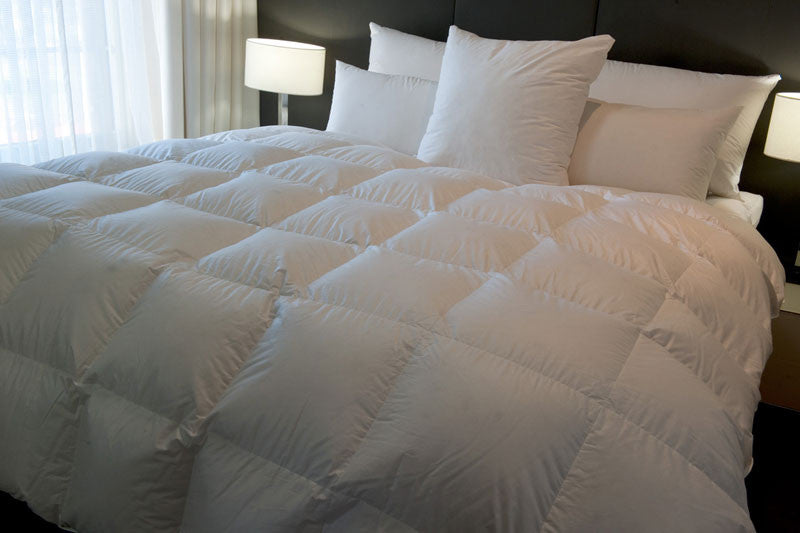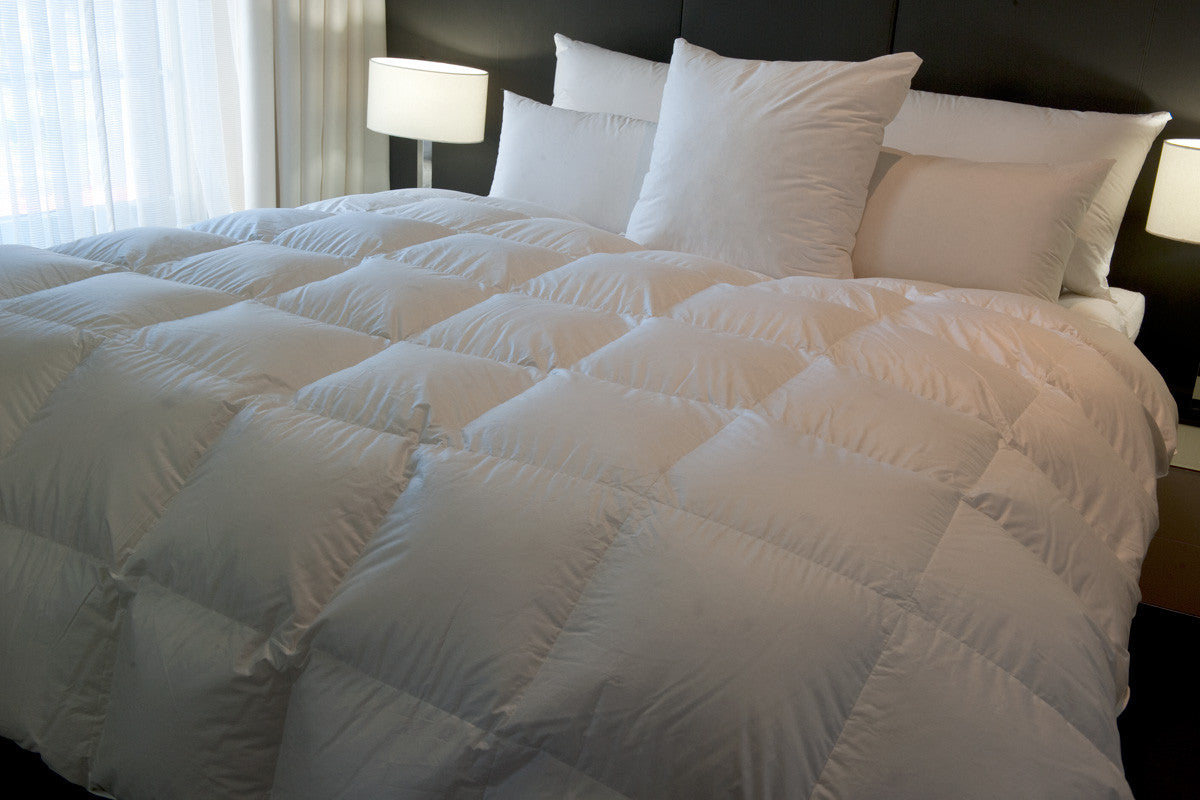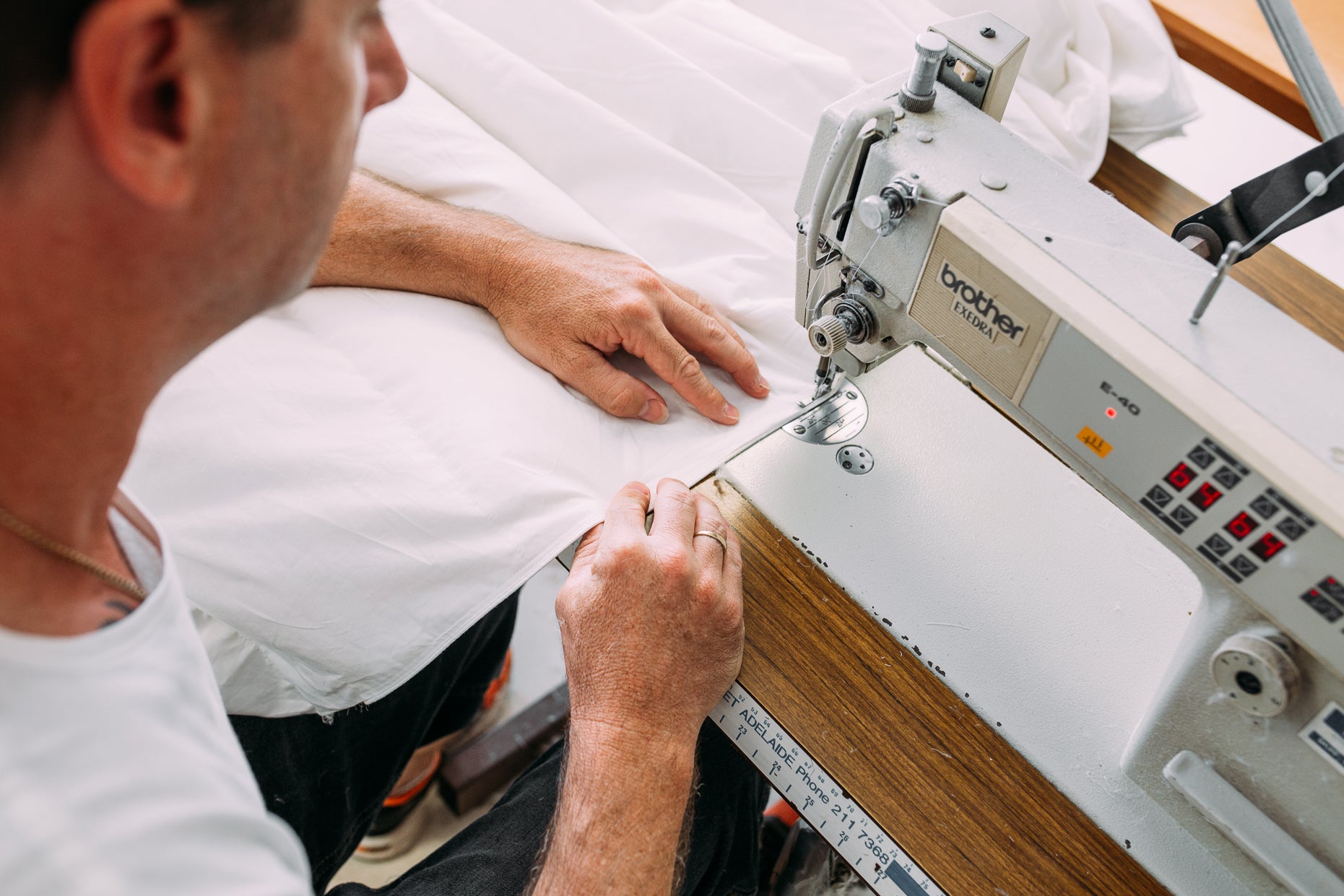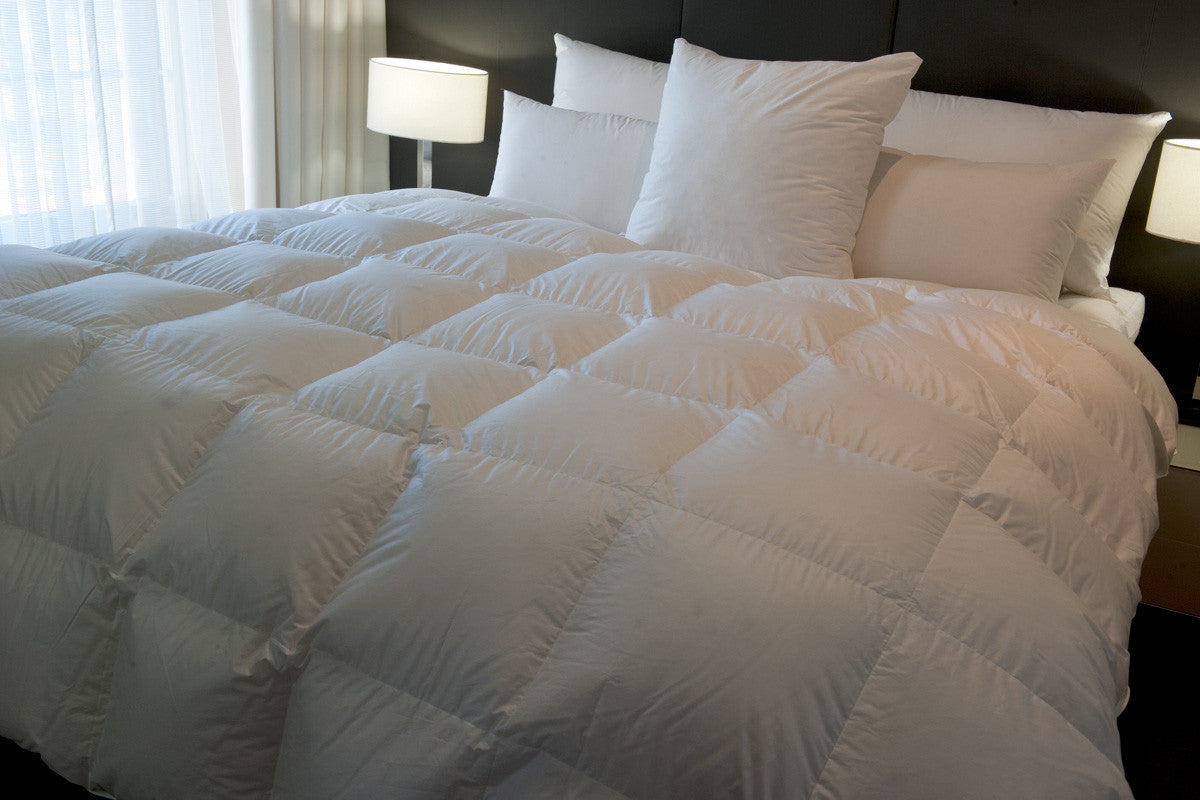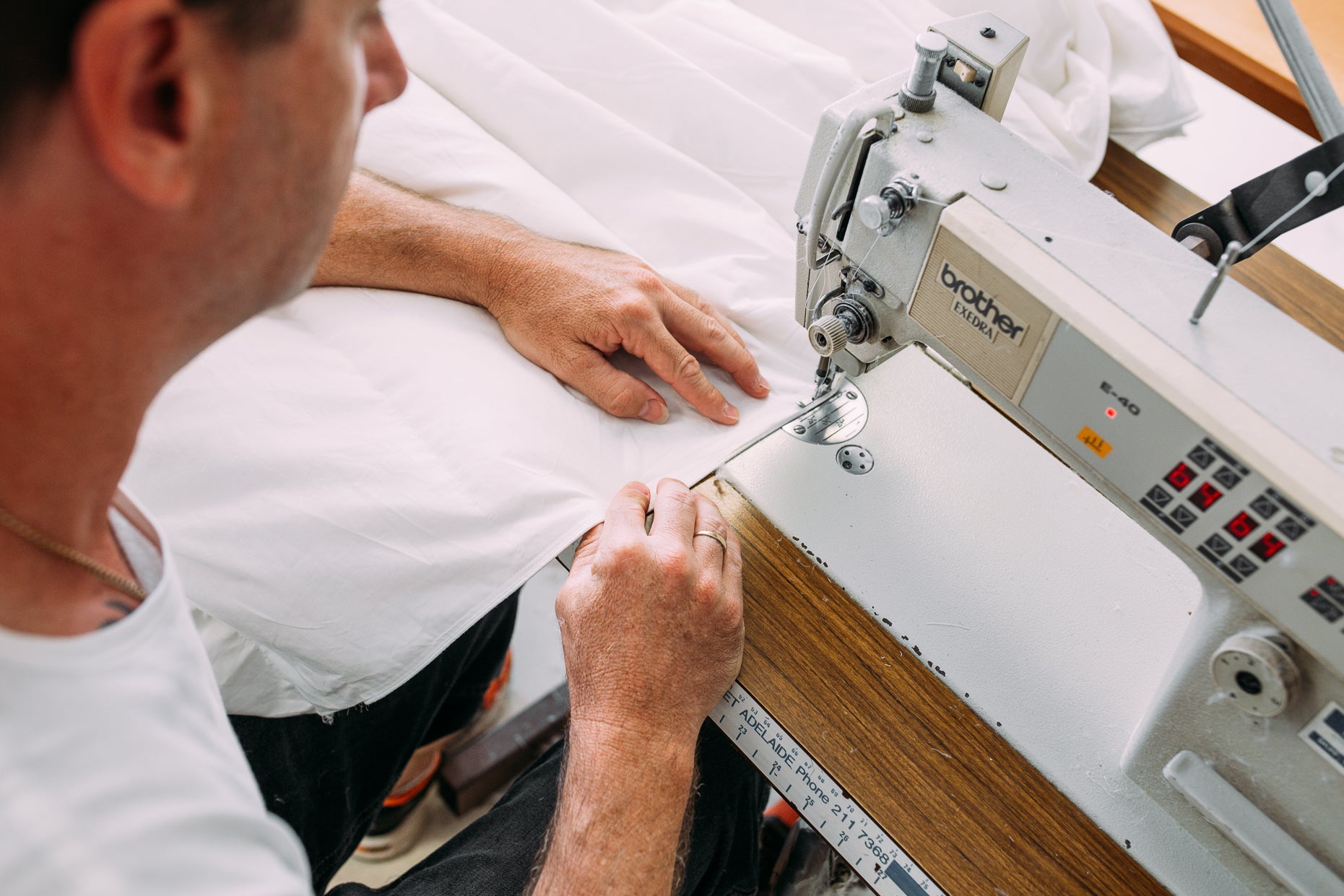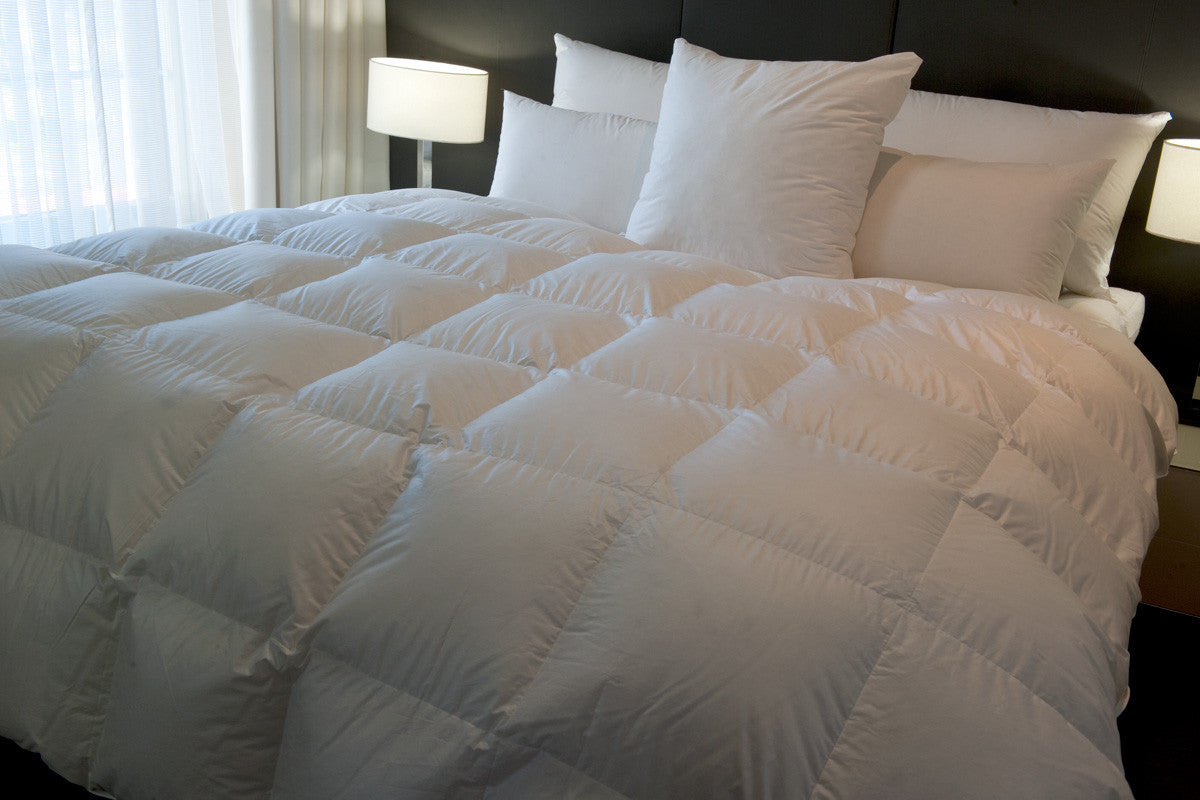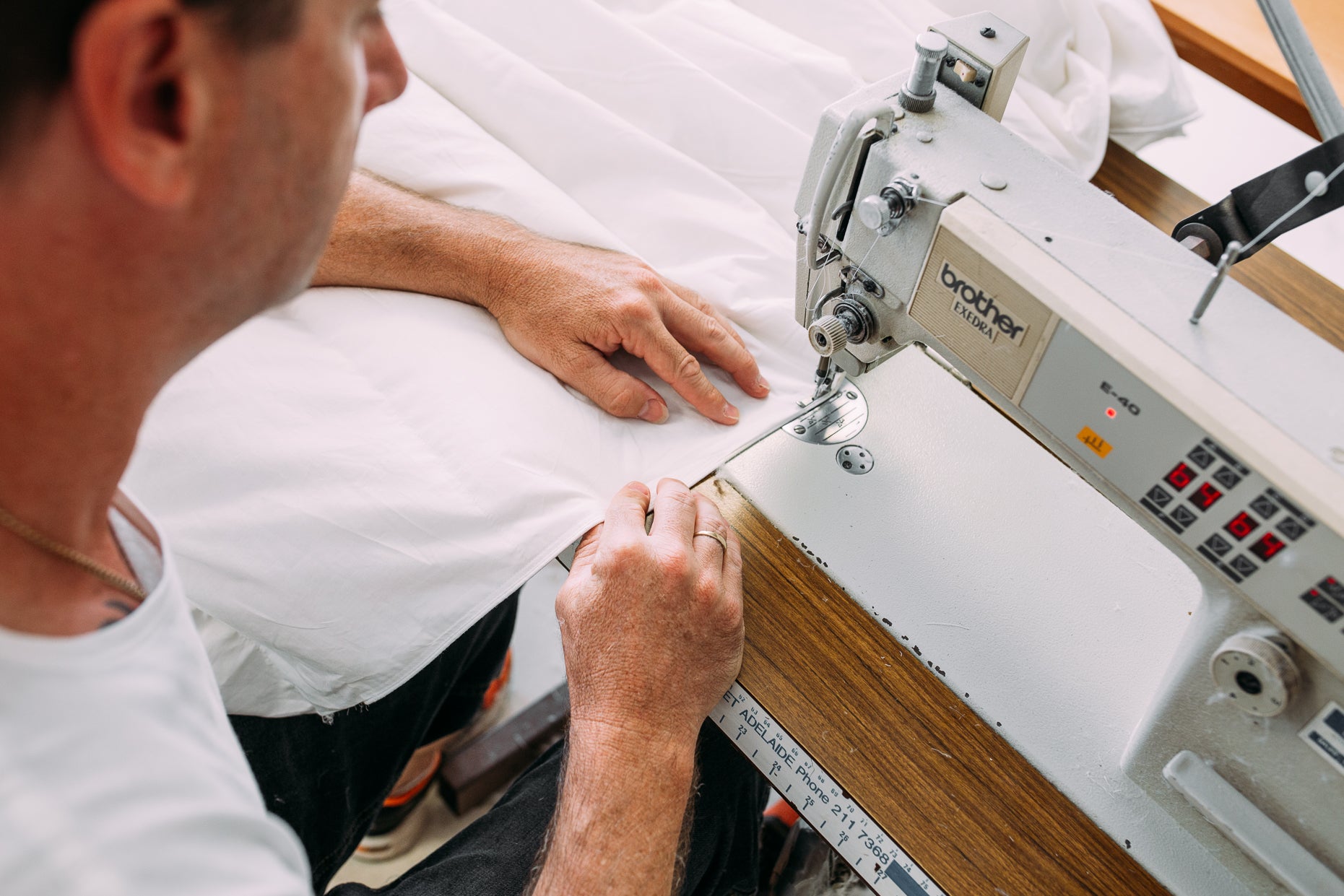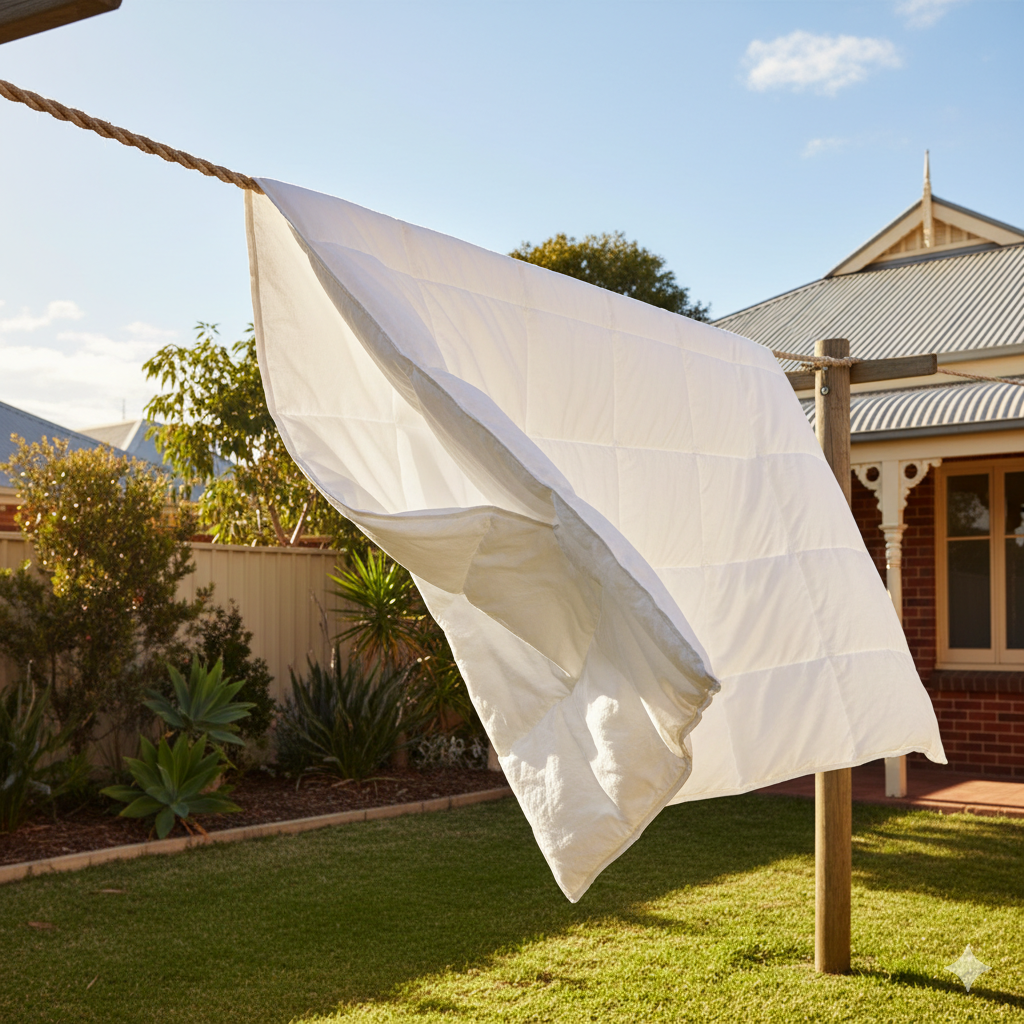
How Adelaide Homeowners Keep Duck Down Quilts Fresh Year-Round
Keeping a duck down quilt fresh and comfortable is not simply about washing it occasionally. Adelaide’s unique climate, with its hot, dry summers and cooler, damper winters, means that the way you store, refresh, and maintain your quilt has a direct impact on its comfort and longevity. With the right approach, you can extend the life of your bedding, keep it free from allergens, and enjoy a cosy, breathable quilt every night of the year.
Frequently Asked Questions
How often should I air my duck down quilt?
Quilts benefit from regular airing, ideally once a month, but some homeowners prefer to do it every two weeks. On a warm, dry day, take your quilt outside and spread it out across a clean surface or clothesline in indirect sunlight. The fresh air lifts away lingering odours, while natural ventilation removes moisture trapped from nightly use. Even a short airing of two to three hours can make the quilt feel noticeably fresher and restore its loft. Regular airing also reduces the likelihood of mould spores taking hold, which can be an issue during wetter Adelaide winters.
Can duck down quilts be washed at home?
While some care labels state that quilts are machine-washable, most duck down quilts are too bulky for standard domestic machines. Attempting to wash them at home risks uneven cleaning, clumped filling, and fabric damage. If you must wash it yourself, use a commercial front-loader at a laundromat with mild detergent and a gentle cycle, followed by thorough drying on low heat. However, professional cleaning remains the safest option for protecting both the down and the outer shell. A poorly washed quilt not only loses its insulation but may also develop a lingering damp smell that is difficult to remove.
What is the best method for summer storage?
Plastic containers and vacuum bags might seem convenient, but they restrict airflow, trapping moisture and creating the perfect conditions for mildew. Instead, use breathable cotton or linen storage bags, which allow circulation while still shielding the quilt from dust and pests. Choose a cool, dry space—preferably a wardrobe with good ventilation—and avoid garages or sheds where humidity and pests are more common. For extra protection, slip in natural pest deterrents such as cedar blocks or lavender satchels.
Do duck down quilts cause allergies?
Modern duck down quilts are typically treated to be hypoallergenic, but improper storage or lack of maintenance can allow dust mites, mould, or trapped moisture to accumulate. For allergy-prone sleepers, quilt protectors and hypoallergenic covers provide a barrier against dust. Regular airing, seasonal professional cleaning, and laundering protective covers every fortnight can significantly reduce allergy triggers. Allergy management is often less about the quilt itself and more about how consistently it is cared for.
How long should a duck down quilt last?
With the right care, a high-quality quilt can remain supportive and comfortable for 10–15 years. Signs that it’s nearing replacement include persistent flatness even after shaking, uneven warmth distribution, or filling that feels clumped. Investing in a premium quilt, such as one from Supreme Quilts, means you start with quality materials that are easier to maintain over the long term. In contrast, cheaper synthetic quilts may need replacing every three to five years, often costing more in the long run.
Key Features to Consider
-
Storage Materials: Always choose breathable cotton or linen storage bags.
-
Airing Habits: Freshen monthly in outdoor air to restore loft and remove odours.
-
Cleaning Options: Rely on professional cleaning every few years to protect quality.
-
Climate Preparation: Take steps to manage Adelaide’s seasonal temperature extremes.
-
Allergy Control: Use quilt protectors and wash them regularly.
-
Longevity: With care, duck down quilts remain functional for more than a decade.
Caring for Duck Down Quilts in Adelaide
Adelaide homeowners benefit from tailoring their quilt care to the city’s seasonal shifts. Summers can be scorching and dry, while winters are often cool and damp, creating different challenges for maintaining freshness. Understanding how to store and care for bedding under these conditions is key to keeping your quilt in peak condition.
Seasonal Storage and Climate
When winter ends, many people simply fold their quilt into a plastic tub and tuck it away. Unfortunately, this traps residual body moisture and creates an environment where mould and mildew thrive. The smarter approach is to use a breathable fabric storage bag and add natural moth repellents such as cedar chips or lavender sachets. Keep the quilt away from direct sunlight and avoid humid areas like basements or garages. A little preparation now saves you from pulling out a musty quilt when the cold weather returns.
Regular Refreshing and Maintenance
Daily and monthly routines maintain the comfort of your quilt. Each morning, lightly shake and fluff it to redistribute the down evenly, preventing lumps and cold spots. Once a month, take it outdoors on a mild, breezy day and lay it flat across a clean line. This practice removes odours, refreshes fibres, and restores bounce. Adelaide’s crisp winter mornings are ideal for this—just avoid exposing it to damp or foggy conditions.
Climate-Smart Storage
Adelaide’s climate can be tough on delicate fabrics. The dry summer heat can cause the natural oils in duck down to break down, leaving the quilt brittle over time. Meanwhile, damp winter days risk mildew growth. Homeowners should adapt storage conditions by using dehumidifiers during wetter months or silica gel packets in cupboards. For summer, avoid leaving quilts near heaters or in attics where extreme heat can damage both the fabric and the filling.
Routine Freshening
Nothing beats the natural cleansing power of fresh air and sunlight. A few hours outdoors can eliminate odours while UV rays kill surface bacteria. Avoid midday heat in summer, which may scorch fabric, and instead choose gentle morning or late afternoon sun. After airing, shake the quilt thoroughly before returning it to the bed. This routine is quick, cost-free, and effective at maintaining a quilt’s freshness.
Professional Cleaning When Needed
Even with good habits, professional cleaning is essential every few years. Experts use large commercial washers and dryers that clean gently and dry thoroughly, preventing clumping. Attempting to dry a quilt at home without proper equipment risks leaving residual dampness, which quickly turns into mould. For those who have purchased premium bedding such as Supreme Quilts, scheduling periodic professional cleaning is a worthwhile investment that extends the life and comfort of the quilt.
Allergy Management
For households with allergy sufferers, quilt care requires extra diligence. Dust mites thrive in warm, humid conditions, but regular airing and protective covers significantly reduce their presence. Wash protectors and bed linen weekly in hot water to remove allergens. For added protection, consider vacuuming your mattress and surrounding area frequently, ensuring the entire sleep environment remains hygienic. Adelaide’s pollen-heavy spring season is another time when keeping bedding clean is especially important for minimising allergy flare-ups.
Why Proper Quilt Care Matters
A duck down quilt is more than a household item—it’s an investment in comfort and quality sleep. Unlike synthetic quilts, down provides superior insulation, breathability, and softness, but these benefits last only if the quilt is properly cared for. Replacing a high-quality quilt prematurely can be costly, whereas maintaining it with regular airing, storage care, and professional cleaning ensures value over decades.
For many households, quilts are a staple of family life, passed down or used for years. The sentimental value attached to them makes care even more important. With Adelaide’s changing climate, a proactive approach not only saves money but guarantees consistent warmth and luxury. While a synthetic quilt may cost less upfront, the frequent need for replacement often outweighs the higher initial investment in duck down. Over a decade, the cost of replacing synthetics every three to four years quickly surpasses that of maintaining one high-quality quilt.
If you’re ever unsure about how to care for your quilt, whether it needs refreshing, or if it’s time for a professional clean, don’t hesitate to contact us for tailored guidance. Small adjustments to your care routine can deliver major benefits in comfort, hygiene, and durability.
Trusted Bedding Providers
The quality of your quilt plays a huge role in how long it lasts. Premium providers focus on responsibly sourced down, durable stitching, and breathable outer fabrics that withstand repeated use. Brands such as Supreme Quilts are known for crafting bedding that is well-suited to Australian climates, ensuring warmth without heaviness. Their products are carefully tested for durability, ensuring the down remains evenly distributed and the stitching resists wear over time. Choosing such trusted providers gives you confidence that your quilt will stand the test of years, not just seasons.

